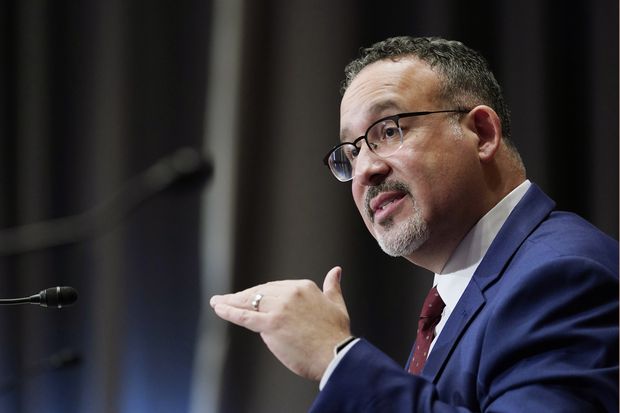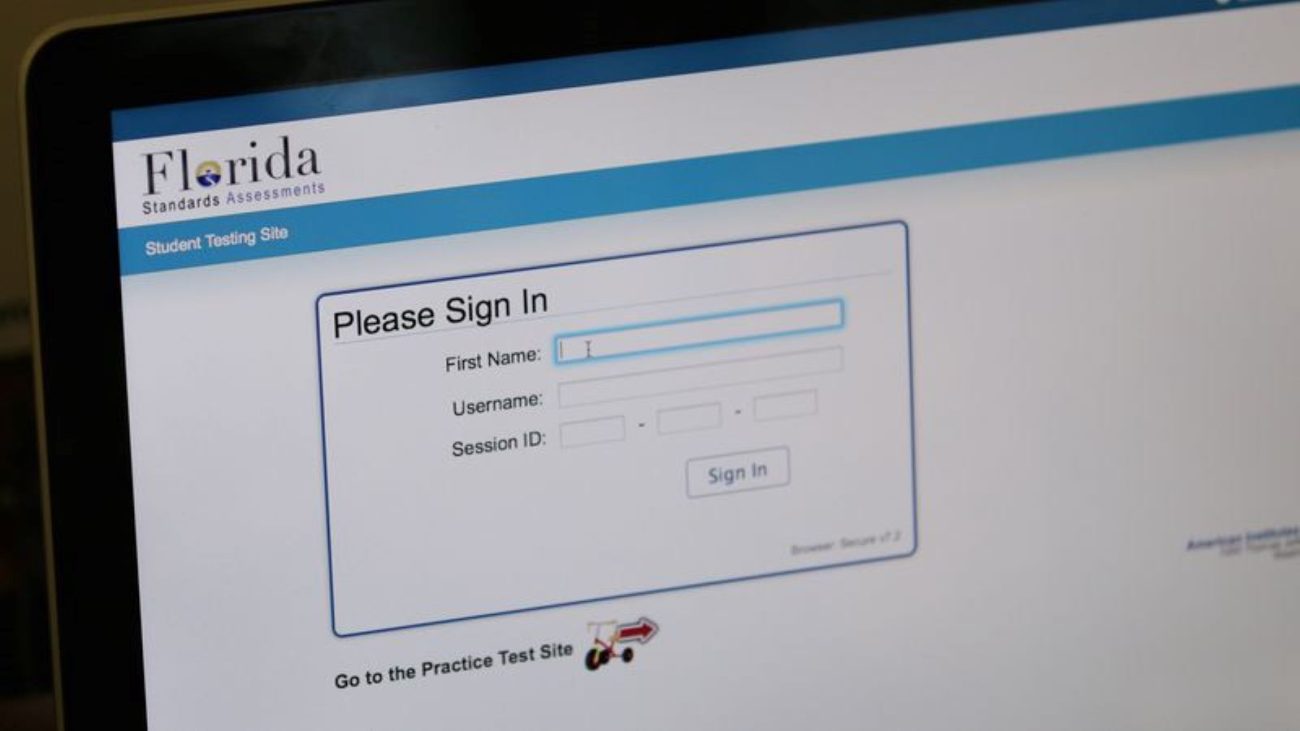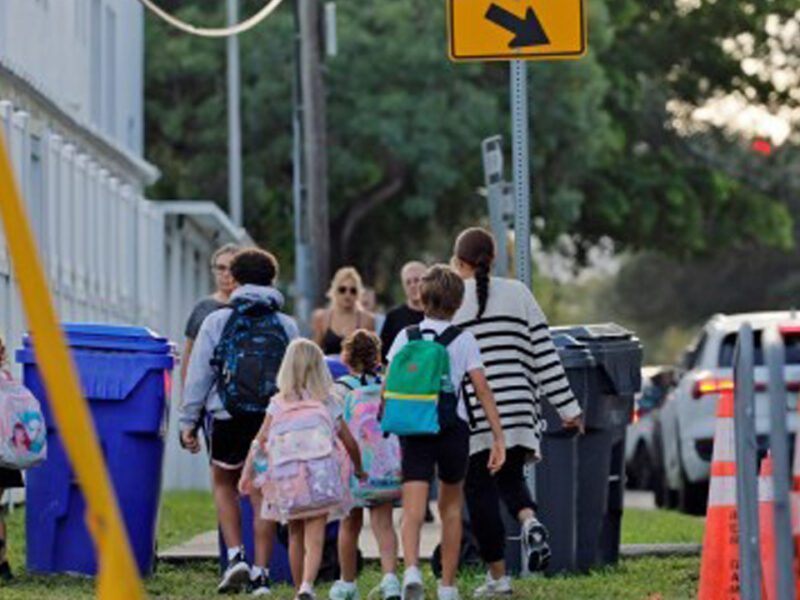Florida schools will resume state testing, in person. Some say no way
Parent groups that support opting out of tests see new interest in their movement. “I just don’t feel it’s worth the risk.”
Tampa Bay Times | by Jeffrey S. Solochek | February 11, 2021
Pasco County eighth-grader Sophia Slagter has attended classes from home since the pandemic began nearly a year ago.
She’s got asthma and other health issues that put her at risk, and her family has taken strict precautions to keep her safe. They plan to continue “hunkering down” until the threat abates.
That includes skipping Florida’s annual spring tests in math and English — even though her Algebra I end-of-course exam will count as 30 percent of her course grade and passing it is a high school graduation requirement. The state intends to administer its tests this year, unlike last spring, and made clear they’ll be offered only inside schools.

“I’m not going to risk my daughter’s health just so they can get a test score,” said Sophia’s mom, Dawn Slagter.
The state’s edict has sparked interest in the testing opt-out movement, which has a small but loyal following in Florida. (It’s been much more popular in New York.)
Cindy Hamilton, who co-founded Florida’s Opt-Out Network in Orlando nearly a decade ago, said her group has been “swamped” with information requests in recent weeks, as school districts have begun alerting families that in-person testing is scheduled for April and May.
“We have had a lot of people talking about it who hadn’t talked about it before,” Hamilton said. “It is a whole lot of parents whose children have done distance learning.”
Many have questions about the rules overrefusing to take the tests. State and school officials promote the idea that students must sit for the end-of-course exams and Florida Standards Assessments. They often tell parents it’s against the law to opt out.
But only certain tests carry consequences for students, Hamilton said, and most of those can be overcome with alternative methods of assessing each child’s abilities. Third-graders, for instance, can use a portfolio of their work to replace the reading test that governs promotion. Tenth-graders have two more years to pass the language arts exam or earn a rough equivalent — a “concordant” score on another state-approved test such as the SAT or ACT.
Hamilton encouraged parents to review state law and rules regarding student progression and graduation to understand options. Opt Out has a website filled with practical advice, as well. In past years, the group has promoted “minimal participation” — showing up, signing the test booklet and setting it aside without answering questions.
“The easiest way to do this now,” Hamilton said of opting out, “is to not bring your kid to school.”
Setting up safe testing sites
School district officials know they face challenges in convincing students to attend testing sites this spring. They’ve struggled to get remote learners to engage on a daily basis, which is part of the state’s rationale for encouraging online students who haven’t made “adequate progress” to return to in-person instruction.
The federal government, which calls for 95 percent student participation in testing, has sent mixed messages about how to proceed. Education Secretary-designate Miguel Cardona told the Senate during his recent confirmation hearing that he didn’t see a need to bring remote students into schools solely for testing.

Education Secretary nominee Miguel Cardona testifies before the Senate Health, Education, Labor and Pensions earlier this month. He told senators that he didn’t see the need to bring remote students into schools solely for testing. [ SUSAN WALSH | AP ]
At the same time, Cardona expressed support for testing to gauge whether children have fallen behind and determine approaches to catching them up.
Districts have aimed to split the difference. Several superintendents have tried to reassure parents that they will provide a safe testing environment, perhaps separate from the students who attend in person daily.
“We’re working to figure out what that may look like. Maybe we’ll test on evenings and Saturdays. We’re not sure yet,” Pasco superintendent Kurt Browning said.
They stress the need for test results, suggesting scores will help them guide future instruction.
At the same time, they’re pressing state officials to remove many of the high stakes that accompany the outcomes. With schools focused so heavily on the well-being of students and staff, including their mental health needs, the timing seems poor to place labels or grades on them, suggested Hillsborough County superintendent Addison Davis.
“No one cares about school grades during a pandemic,” Davis said.
Some state lawmakers have taken up the cause, filing legislation to suspend school grades, test-based retentions and other actions for another year. Thousands of parents, meanwhile, have signed online petitions asking the state to cancel the tests this spring.
Amanda Loeffler, who has three children in Pinellas County schools, said she appreciatesthe need for testing. But she questionedwhether it makes sense this year.
“Our community is still in crisis, you know,” said Loeffler, who has kept her children home during the pandemic but was leaning toward sending them in for the Florida Standards Assessments.
Answers from the Governor’s Office and Department of Education have been limited, particularly about how they intend to use the scores — something they can do without legislative action. Lacking clear guidance, many parents have found themselves juggling children’s health and academic interests, hoping to find answers that don’t hurt their long-term prospects.
Seeking other options
Jennifer Burton’s son, Blake, remotely attends a gifted magnet program at Boyette Springs Elementary in southern Hillsborough County. The family has “multiple co-morbidities,” she said, so they keep the third-grader home.
Burton doesn’t worry about her son’s ability to pass the state reading exam. As a University of Tampa marketing professor, she’s not opposed to academic testing to demonstrate student skills, either.
Her concerns arise from knowing the state requires children to pass the test to continue to fourth grade, while not knowing how the testing site could be safe.

Restaurants and other parts of society are open, she noted. “But we don’t go to these things. We stay home. I don’t trust the precautions.”
Burton planned to not send Blake to school for state testing, but shedoesn’t want him to face another year of third grade.
Throughout the year, she said, her son has taken several assessments that demonstrate his reading level. She was exploring whether those would meet the state’s portfolio alternative for third-grade promotion.
That type of information should be enough to satisfy the state and schools for all grade levels, agreed Kimberly Lasher, whose third- and fifth-grade daughters remotely attend Bevis Elementary in Lithia.
“To go on campus to take a high-stakes test, I see it as creating anxiety in my kids,” said Lasher, who intended to opt out her children. “They’re worried about going to campus. They’re also nervous because they want to do well.”
Hillsborough superintendent Davis told Lasher in an email there is no opt out option in state law. At the same time, he told the Tampa Bay Times, he has instructed his leadership teams to consider all legal exemptions and opportunities available to determine students’ success.
The state’s 10th-grade language arts test, like the Algebra I end-of-course exam, is another of Florida’s gatekeeper exams. High school students must pass it, or an equivalent, to earn a diploma.

That’s got Pasco mom Deanna Fitzpatrick concerned for her daughter, McKenna, who attends Wiregrass Ranch High through distance learning because of her asthma.
Even if the school conducts in-person testing to the best of its abilities, Fitzpatrick said, “if she so much as gets COVID, I run the risk of it being even worse for her.”
McKenna already faces the pressure to do well in classes while attending remotely, she noted, and wants to show well on her exams as she explores colleges. The idea of returning to school to take a test is adding to the angst.
“I just don’t know where we’re supposed to draw the lines,” Fitzpatrick said. “I cannot let her go in. But I’m not given too many options.”
Peggy Jones, assessment director for Pasco schools, said the district encourages students to come in for their tests. She added that the state allows them to substitute ACT and SAT scores for the graduation requirements, and they can get those without taking the state tests.
Laura McCrary, a founder of Pinellas County’s Opt Out chapter, cautioned students and parents to pay attention to the value some exams, such as middle school civics and high school biology, count toward course grades. The state has not waived that requirement this year.
“There could be consequences if they don’t send their children,” said McCrary, whose other group United for Florida Children is pushing to cancel the tests. “I recommend they talk with their school, ask specific questions and get (answers) in writing.”
‘A tough decision’
Sophia Cox said her sixth-grade son, Finnegan, hasn’t set foot in Pinellas’Thurgood Marshall Middle since he enrolled there.
“He’d be going into a school he’s never attended to take a high-stakes test,” Cox said.
Like others, she worried about the safety of the testing room and shared equipment. She also feared Finnegan might lose his space in the school’s magnet program if he opts out.
At the same time, she wondered whether the tests could provide any valid information, given students’ unusual year in schools — both face-to-face and online.
“It’s really a tough decision,” said Cox, who sent Pinellas district officials an email detailing her thoughts.
Assistant superintendent Kevin Hendrick responded, saying the district would provide “healthy and secure” testing environments for online students, perhaps even one-on-one. He didn’t say whether students might lose their magnet seats by not showing up.
After added consideration, Cox decided to send her son back to school for classes and testing, despite her misgivings.
“He really wants to go back,” Cox said, “and if he is going to get exposed anyway because of the FSA, I might as well just let him go in at this point.”
Photo: The Department of Education says students must take spring Florida Standards Assessments in person. Some students taking classes remotely because of the pandemic don’t feel safe going to campus. [ Pasco County Schools ]






